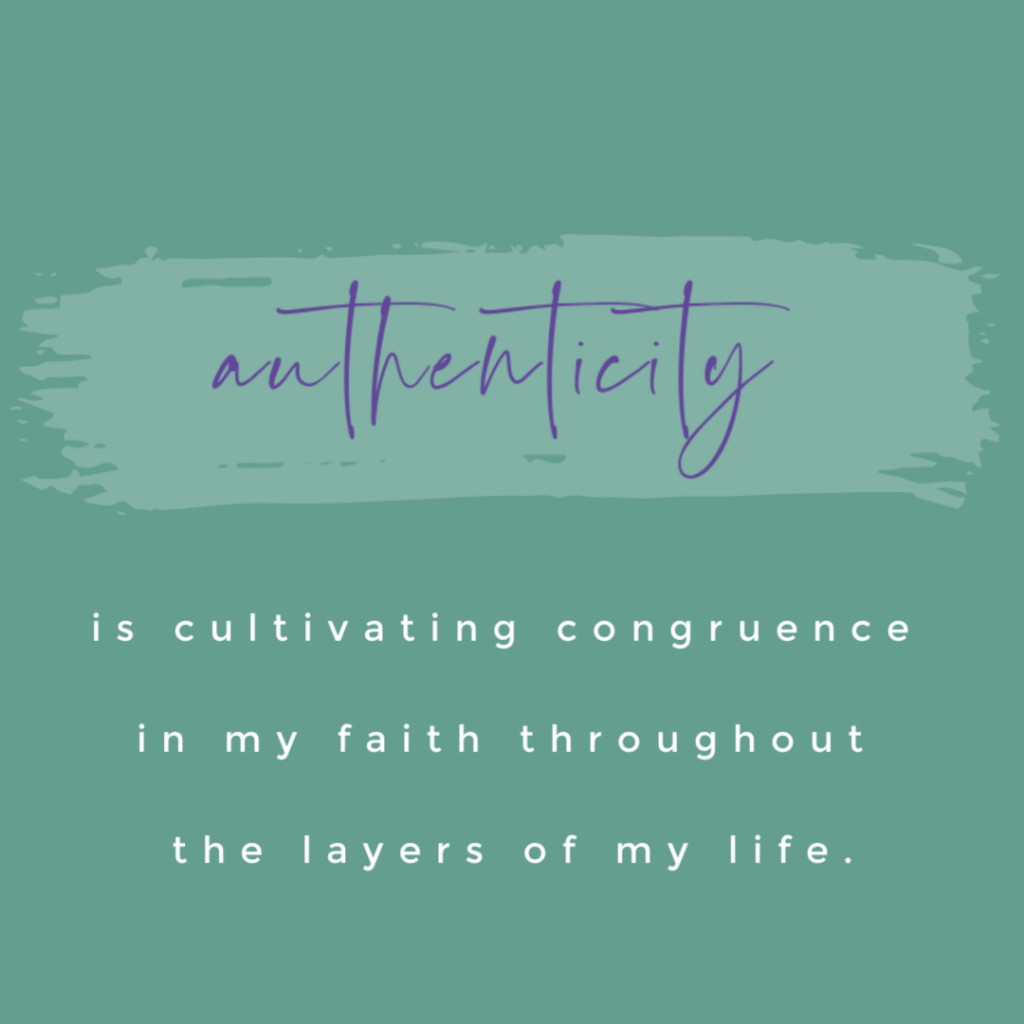Kendra Note: I wrote this post several weeks ago, before our lives were all turned upside down. My apologies if any of the ideas presented feel out of place in today’s environment.
This spring, my Women’s Bible study has been studying the book of 1 Thessalonians. The title of this study was Authentic: Real Faith in Real Life, and while I’ve enjoyed all of the topics we’ve studied in my four years with this group, this particular study stood out to me because authenticity is a huge value of mine and one I’ve spent quite a bit of time contemplating (and trying to figure out) over the years.
Webster defines authentic as “worthy of acceptance or belief as conforming to or based on fact; not false or imitation; true to one’s personality, spirit, or character.” Based on this definition, it seems that authenticity would be a highly desirable attribute. And in a way, it is: I think that most of us appreciate the ability to take others at face value, and in turn we hope to portray our true selves to the rest of the world. Of course there are exceptions to this rule, but our culture’s current backlash against overly polished social media images, and the contemporary obsession with reality television shows, reveals that deep down, we are most comfortable in the realm of genuineness and personal honesty.

For myself, I have come to prize and prioritize authenticity, even at the risk of showing myself in a less than favorable light. I don’t always excel at this, but I’ve learned from years of hiding behind masks of achievement and perfectionism that exposing my true self—even when it isn’t pretty—is the happiest and healthiest strategy.
However, there is one aspect of authenticity that can trip me up: I tend to struggle with finding the balance between complete transparency (which can be unhelpful and unnecessary) and total reservedness (which feels inauthentic). It is easy for me to fall into the mindset that the only way for me to be fully authentic is to walk around with my emotions, opinions, and insecurities completely exposed.
It’s within this uncomfortable dichotomy that our study’s working definition for authentic has proven incredibly helpful. Cindy, our teacher, began the study by defining authentic as “cultivating congruence in my faith throughout the layers of my life.” When Cindy used the term “layers” to describe our lives, I immediately imagined an onion: the various layers of an onion do not look the same as one another, yet they are all part of the onion. I can peel back each layer of the onion, and while its appearance will change with each peeling, it will continue to be an onion; its essence has not been altered.

As people we, too, have layers. Hopefully they will all be reflective of our own true essence, but we don’t need to expose every layer to everyone we encounter. Some contexts will merit a full unveiling of our must vulnerable selves; others will only require us to expose our surface ideas/beliefs/etc. But as long as these thoughts and actions remain in alignment with our personal beliefs, both these core- and surface-level portrayals of ourselves can be totally authentic.
Specifically, how does this working definition play out for me? When it comes to my faith life, this means that my inner transformation by the power of the Gospel will be reflected in how I live my life; it does not mean that I need to outline my entire belief system for every person I encounter. In the world of social media, it means that I can still live out my value of authenticity when sharing cute pictures of my kids—even when these pictures don’t individually tell the complete story—because they are reflective of an important (and memory-worthy) part of our family experience. In my writing, authenticity looks like sharing words that are entirely true, but it doesn’t require me to vomit all of my ideas and experiences onto the screen.

I won’t always achieve the right balance in my quest for authenticity, but I will continue to hold hold the pursuit of authenticity in high regard, aspiring to maintain alignment between my inner thoughts and outward actions, which should both be reflective of my core beliefs. As I continue to ponder this concept, I’d love to hear from you: what does authenticity mean to you? Is it a value you prioritize? How do you balance authentic living with problematic oversharing?